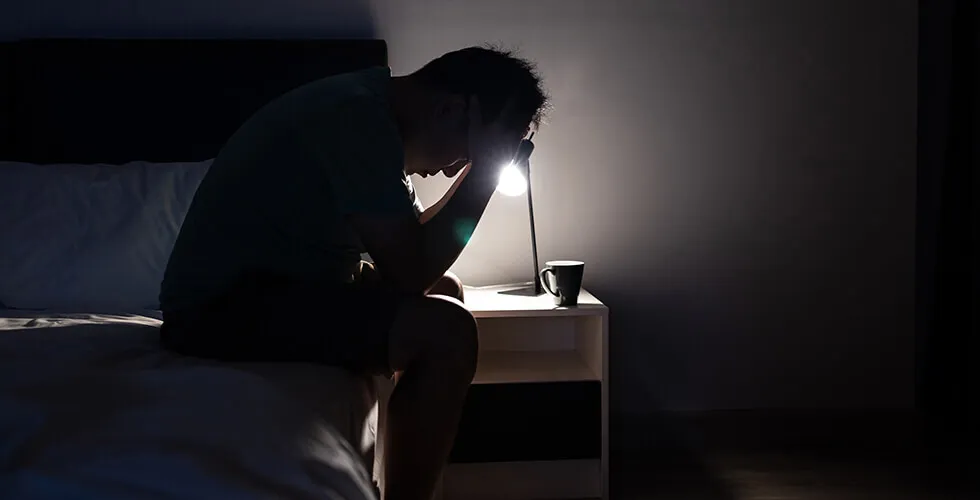
Feeling down at night is common. Research shows that well-being declines throughout the day, reaching a low around midnight. This happens due to having fewer distractions at night, fatigue, and biological changes.
Without activities to occupy the mind, negative thoughts can intensify. Serotonin levels drop, melatonin rises to promote sleep, and cortisol decreases, causing mood shifts. The lack of natural light at night can further impact emotional regulation.
To ease nighttime depression, align with your circadian rhythm by following a consistent sleep schedule. Creating a calming bedtime routine -such as reading, stretching, or drinking herbal tea – can signal relaxation. Avoiding screens before bed supports melatonin production and enhances sleep quality.
Managing negative thoughts is also crucial. Journaling or listing positive moments from the day can help shift focus from worries. Staying connected with loved ones or spending time with a pet can reduce loneliness. Practicing relaxation techniques like deep breathing or progressive muscle relaxation can calm the nervous system and alleviate stress.
If nighttime sadness persists for months, seek professional help. Cognitive behavioral therapy (CBT) and other treatments can address underlying depression and anxiety. Understanding these factors and taking proactive steps can improve mood and lead to more restful nights.

